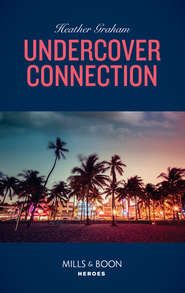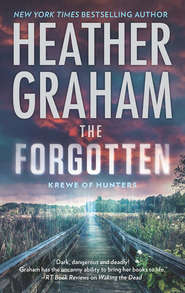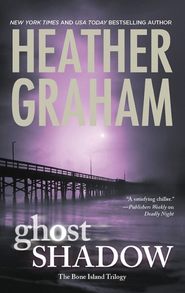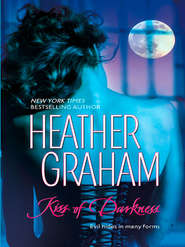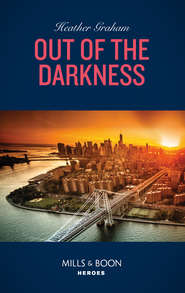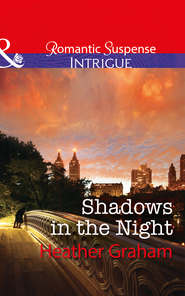По всем вопросам обращайтесь на: info@litportal.ru
(©) 2003-2024.
✖
Darkest Journey
Настройки чтения
Размер шрифта
Высота строк
Поля
“Oh, yeah. Nurse Moreau, here,” Charlie said. “I think that’s why people keep coming to reenactments, because of the human side of war. I mean, the generals who fought each other were often friends—some of them had studied together at West Point—or even family. No matter how you look at it, the Civil War was probably the most heartbreaking era in this country’s history. I’m so happy we didn’t live back then.”
Jimmy grinned. “I agree, and I actually love the point Brad is making with this movie. You know, that people are people, flesh and blood, beating hearts, the same desire to find love and happiness. There may be a constant tug-of-war between environmentalists and oil companies, but I love how he doesn’t make everything black or white.”
“I love Brad’s script, too, especially the way he shows how the Confederate and Union soldiers found common ground before they died, and then their ghosts work together to save me from being killed.”
Jimmy’s grin disappeared. “Speaking of which, did you hear about the murder?”
“What murder?” Charlie said. “When?” She’d been in bed early the night before, because her call that morning had been at the crack of dawn, so they could film the just-completed scene when she’d confronted an oil exec and a state senator after discovering the oil exec had bribed the senator to let him drill where his efforts would destroy the water source for their fictional town of Mary Elizabeth. That had led to tonight’s scene, with her on the run from an oil exec and a crooked senator.
She hadn’t seen any news before bed, and she hadn’t had time to catch any that morning, either.
“They haven’t said what happened yet. Only that a man was murdered. He was from Baton Rouge, and I feel like we might know him, because he was a reenactor, too. His name was Albion Corley. A nice guy, they said on the news.”
The name sounded vaguely familiar to Charlie. She wasn’t sure why. Maybe he’d been someone she’d met through her father, who was often brought on as a consultant for the local reenactments.
“Where did it happen?” Charlie asked. “Was it anywhere near here?”
“Between here and Port Hudson. His body was found just outside an old family cemetery, poorly buried under less than a foot of earth.”
“How awful,” Charlie said, genuinely dismayed. This was a small, close-knit area. The population of St. Francisville was under two thousand. They were just over thirty miles north of Baton Rouge. Of course, the population there was growing and spreading out. Still, murder wasn’t common around here.
Ten years ago, yes, there had been a local serial killer, but he’d been crazy, plus they’d caught him. He’d killed nine people; he’d nearly killed Charlie. Ethan had saved her, and the killer had died five years ago of a stroke while still on death row.
“Is that all you know?” she asked.
“Yeah. It was major-league news this morning, but that was all they seemed to know. They did show a quick clip of a press conference, but it was just double-talk by a Detective Laurent. He basically said they can’t give out any information because the case is under investigation.”
“I can’t believe no one mentioned it all day today.”
“The news just broke this morning, so most people on set probably don’t know about it. I wasn’t on call until later in the day, and that’s why I heard about it. It’ll probably turn out to be some family thing, a fight between friends, or even some idiot playing around with a firearm. It’s sad, but something terrible happens somewhere every day.” He paused and looked around. “And, as your dad once told me, we just never seem to learn our lessons about cruelty and violence.”
“I’ll bet my dad knew him,” Charlie said. “The victim, I mean.”
“I didn’t realize it would upset you so much. I’m sorry I told you.”
“Why? I had to know.”
“But we’re making a movie, and that needs to be our focus. Yours, especially. And Brad’s calling,” Jimmy said, brushing a smudge of caked mud off her face. “Let’s go see that footage.”
“Hey, guys, come on,” Grant Ferguson—another friend who was working as one of the ghosts—said, joining them. “Let’s hurry and see what Brad’s so excited about, because after that we get to bathe.”
Grant was playing a soldier who’d been gruesomely wounded before his death. On top of that, his face prosthetic was peeling off in the heat, which made him look all the more ghastly. At forty-two he was older than most of the others, which was a plus, because soldiers of all ages had fought in what, down here, was still called the War of Northern Aggression.
Charlie struggled to shake off the news she had just heard and tried to smile. “Grant, you look horrible,” she said. “And I mean that as a compliment. Jennie outdid herself.”
It was true. Jennie McPherson, the makeup artist, had worked wonders on a shoestring budget.
Despite the fact that they were all unpaid, every person involved in the film was glad to be there. In exchange for volunteering their efforts, they were all shareholders in the film. Of course, it needed to achieve a pretty broad distribution and earn a fair bit if they were to make any money, but they were all friends, along with a few friends of friends. Most of them had gone to school together and most of those had even graduated in the same class. Some had become friends through other acting jobs. Charlie had met Grant when they’d filmed a spot for a local car dealership. And he, like many of the other extras, had a day job. He was an accountant when he wasn’t acting. That had proved to be a huge asset, because he was also an associate executive producer and kept the books for the film, making sure they spent the budget wisely, especially the state’s money.
Louisiana had made a concerted effort to woo the film industry, and Brad had received a state grant to help him cover expenses for props and equipment.
Charlie and her friends weren’t tabloid names—yet. But most of them were making a decent living at their craft, just like thousands of other actors who weren’t yet household names and might never be. This film was her first chance at a lead role, and since she hailed from St. Francisville herself, she was also in love with the historical incident on which Brad’s script was based.
It had occurred one day in the middle of the Siege of Port Hudson during the Civil War. Port Hudson had been incredibly important to both sides, since it was at the junction of the Red and Mississippi Rivers. Admiral Farragut from the North wanted it taken, so the US Navy was determined to take it.
In that effort, they shelled Grace Episcopal Church.
But one day, suddenly the shelling went silent. And a small boat, bearing US Navy men and a white flag of truce, made its way to the shoreline below the bluffs.
The commander of the Albatross, one of the ships involved in the shelling, had died by his own hand. Since he’d exhibited no signs of depression in a loving letter written to his wife just days before, it was later assumed that he’d grown despairing during a fit of delirium, perhaps due to yellow fever. A good commander and a Mason and a kind man full of concern for the wounded of both sides, he had been well loved.
Two of his officers and best friends aboard ship hadn’t wanted to consign his body to the waters of the Mississippi, so they’d gone ashore to find out if there might be brother Masons anywhere near, and if there was any way that Commander John E. Hart could be afforded a proper service and burial. One of the largest Masonic lodges in Louisiana—Feliciana Lodge #31 F&AM—was nearby. The White brothers, who lived in the area and were touched by the plea of Hart’s friends, set out to see what they could arrange.
The Grand Master of the lodge was serving in the Confederate Army. But the Senior Warden, William W. Leake, also with the Confederate Army, had his “headquarters in the saddle” and was in the area. The White brothers found him and explained the situation, and Leake said he couldn’t imagine any military man—not to mention a brother Mason—not having a proper burial.
Word was sent back to the Albatross, and the ship’s surgeon and a few fellow officers made their way, carrying the body in the June heat, swearing and determined, up the bluffs to the church. They were met by the White brothers, W. W. Leake, a number of other Masons, the Reverend Lewis and a company of Confederate States Marines.
For a few precious moments in time, on June 12, 1863, there was peace. Commander John E. Hart was buried with full military and Masonic honors in the Grace Church graveyard.
Of course, the war went on afterward. Vicksburg fell on July 4, Gettysburg turned the tide in the East on July 3, and Port Hudson was surrendered on the 9th, following the longest siege of the war. There were five thousand Union casualties and more than seven thousand Confederates. Once Vicksburg had fallen, General Gardner felt that to continue to hold out would simply cause more useless bloodshed and death. He was right, but he was overruled by his superiors. From then on it was more blood and the tragic loss of life for both sides until the day at Appomattox Courthouse almost two years later when, for all intents and purposes, the country was reunited.
William Leake went on to become Grand Master of the Feliciana Lodge, and for forty-nine years, he tended to Hart’s grave. When Leake died, he was buried next to Hart, and the two were now honored every year with a reenactment ceremony called The Day the War Stopped.
The whole story was covered in Brad’s movie, which made it very special to Charlie. Her mother’s great-great-grandfather had been one of the Confederate States Marines who had attended the funeral services for Commander Hart. She’d always loved the story, because it was about the goodness that could be found in people even amid the tragedy of war.
But Brad’s movie wasn’t historical; it was a suspense movie about a piece of land hallowed by the blood of the soldiers who’d died there and was now threatened by drilling, people trying to save it and other people sabotaging efforts at negotiation, while a few evildoers were ready to kill to have things their way. It was timely, and those on both sides were drawn as complex characters. At the end, the would-be killers were stopped by the very ghosts who made the land so special. Or, possibly, by what they saw in their own imaginations. The truth was, the ending of his movie was left to the eye—and the imagination—of the viewer.
As Charlie and the decaying soldiers, along with Harry Grayson and Blane Pica—who played the scuzzy oil baron and sleazy senator trying to kill Charlie—and assorted crew members got a look at the footage, she had to agree with Brad. It was great. Also really creepy. If the rest of the footage was as good, they would have a surefire hit.
“Thank you, and that’s a wrap for the day,” Brad said, smiling. “You’re free—until your 7:00 a.m. call if you’re in the fight scene. Check your schedules and have a good night.”
Grant laughed and called out, “Brad, check your schedule. It’s a 7:00 p.m. call tomorrow.”
Brad winced. “Sorry. Go and enjoy your night.”
Charlie smiled at Grant. She wasn’t on call at all for the next several days. Due to her commitment to a web series she was also filming, she had returned to Francisville only five days earlier, and she’d been on call pretty much nonstop since. Now she had only a few scenes to go.
“Sounds good to me,” Jennie McPherson said, as she glanced over at George Gonzales—another Tulane classmate—who was doing double duty in set design and as a prop master. The extras had been returning their hats, swords, guns, belts, buckles and the rest of their accessories—everything but the period uniforms they were still wearing—and George was frowning.
“Missing a belt buckle, a canteen and a knife,” George said.
“Come on, let’s go. Showers for one and all,” Jimmy said, wrinkling his nose as he got a whiff of himself.
“I’m going to stay and help George and the set guys retrieve whatever fell in the fields,” Charlie told him. “We can’t afford to lose any of our props.” She loved George. He was one of the hardest-working and funniest friends she had, claiming descent from both slaves and also from their Confederate masters. He loved to chime in on their historical discussions, especially since his mother—who, confusing things even more, was Israeli—had been born in New York City. He considered himself a Confederate/Yankee/African American, and liked to say that gave him a unique perspective.
“Yeah, don’t want to leave George in the lurch,” Jimmy said. “I guess I can stay, too.”
“You have a call tomorrow night. I don’t. Go have fun, then get some sleep,” Charlie said.






